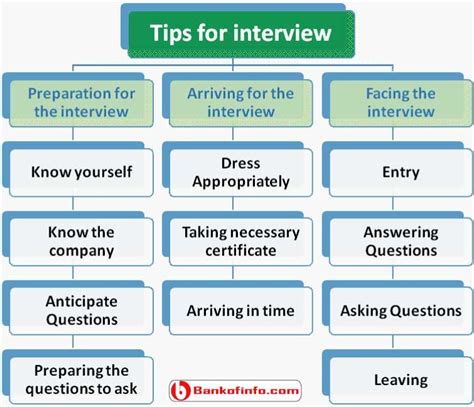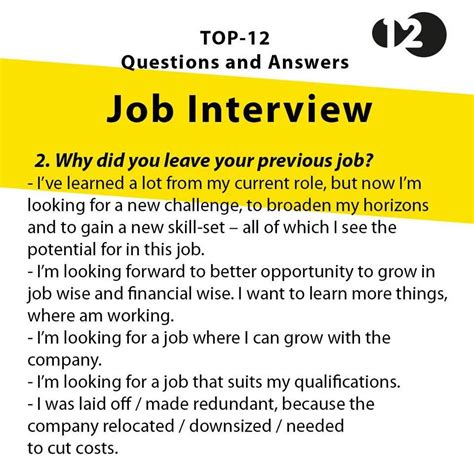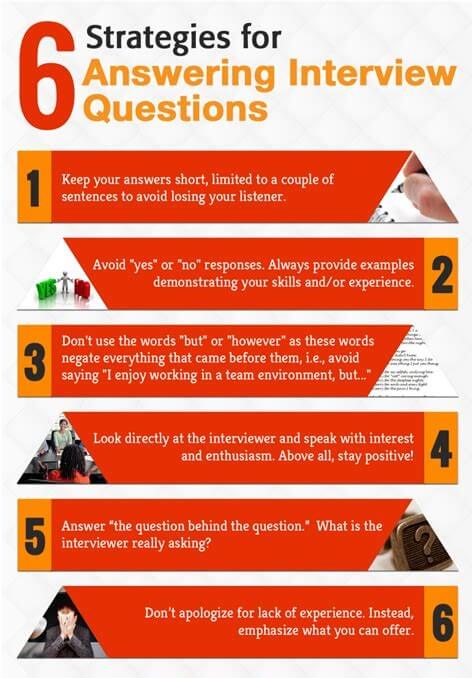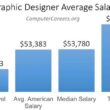Navigating the job market can often feel like braving uncharted territory, but the success of your journey hinges on one pivotal moment—the interview. Mastering this critical stage is not just about making a good impression; it’s about standing out as the best. Whether you’re a seasoned professional or stepping into the spotlight for a dream role, this blog post dives deep into essential strategies that will elevate your preparation to expert status. From understanding why meticulous prep is non-negotiable, to identifying key areas that demand your focus, crafting a unique value proposition, employing advanced research techniques for company insight, to strategically tailoring your responses and honing your skills through mock interviews, we’ve got you covered. Read on to unlock a treasure trove of advice that will help you chart a course to interview mastery.Ace your interview with expert tips on preparation, key areas to focus, crafting a unique value proposition, in-depth company research, strategic answer planning, and mock interview practice.
Understanding the Importance of Interview Preparation

Interview Preparation is an essential step in securing a job; it is a process that requires diligent attention and personal investment. In a highly competitive job market, Interview Preparation for job application can make the difference between receiving a job offer and being overlooked. A well-prepared candidate exudes confidence, demonstrates a thorough understanding of the company and position, and is able to present clear, articulated responses to interview questions. Therefore, mastering Interview Preparation Tips is not simply about rehearsing standard questions, but rather, it involves a deep dive into reflecting on one’s own capabilities, researching the potential employer, and strategizing the best approach to convey one’s worth and fit for the role.
Moreover, investing time in Interview Preparation allows candidates to identify their unique selling points and frame them effectively. This includes crafting a Unique Value Proposition that sets you apart from other applicants, and it is only through careful preparation that such a compelling narrative can be developed. Furthermore, understanding the nuances of the job you are applying for and aligning your skills and experiences with the requirements and mission of the company, are critical factors in making a memorable impression during the interview process.
Another critical aspect of Interview Preparation Tips for Job Interviews is the familiarity with common interview questions and the formulation of coherent and well-thought-out answers. Strategically planning your responses to potential questions is not about memorizing answers, but about having a clear thought structure that you can adapt to various scenarios on the fly. Keeping in mind that interviews are two-way streets, preparation also involves coming up with insightful questions to demonstrate your genuine interest in the role and the organization.
Lastly, incorporating mock interviews into your Interview Preparation strategy is strongly recommended, as this can significantly enhance your performance on the actual day. Mock Interviews: Practice Makes Perfect, enabling you to build confidence, receive feedback, and refine your delivery to ensure that your responses are clear, strategic, and impactful. Utilizing the ‘li’ and ‘table’ HTML tags, below are a few critical steps to consider when preparing for interviews:
- Analyze the job description carefully to tailor your preparation and highlight how your skills match the job requirements.
- Research the company using Advanced Research Techniques for Company Insight to understand the company culture, recent news, and strategic direction.
- Recall specific examples from your past that showcase your competencies and align with the role you’re interviewing for.
- Conduct practice interviews with a friend or mentor using the STAR method (Situation, Task, Action, Result) to structure your responses.
| Preparation Step | Description | Benefit |
|---|---|---|
| Research Company | Use online and offline resources to get to know the prospective employer. | Helps tailor your responses and shows genuine interest. |
| Craft Responses | Prepare answers to common interview questions and develop your value proposition. | Enables you to respond confidently and concisely. |
| Mock Interviews | Practice with friends, family, or through professional services. | Improves communication skills and helps reduce interview anxiety. |
| Review and Reflect | Analyze each practice interview and identify areas for improvement. | Continuously refines interview technique and personal presentation. |
Identifying Key Areas for Expert-Level Interviews

Ascend through the ranks of your professional journey with impeccable Interview Preparation Tips tailored to navigate the expert-level interview landscape. Moving beyond the foundational job interview wisdom, pinpointing specific skill sets and industry acumen can significantly bolster your chances of advancing. At the crux of Interview Preparation for job application at this tier is a comprehensive understanding of the role’s nuances and how your distinct capabilities align with those requirements.
When diving into the core components of Interview Preparation Tips for Job Interviews, it is critical to dissect the job description with an analytical eye. Extract keywords that detail the essential skills and experiences the employer prioritizes. These keywords are not mere text; they’re the vital signposts that map out the territory your preparation must cover, contextualizing your expertise with the employer’s vision and thus crafting your unique selling proposition.
In the realm of expert-level engagements, showcasing agility in your domain may come in the form of elucidating complex project experiences. You must articulate how your strategic influence and decision-making proficiency managed to pivot projects or teams towards success. It’s also invaluable to engrave your narrative with instances where innovative solutions sprang from your leadership, thereby etching a memorable impression during the interview process.
Furthermore, do not underestimate the power of a well-honed narrative; it is the vessel that carries your career milestones across to the interview panel. Preparing poignant and succinct stories that encapsulate your professional ethos not only demonstrates your communication prowess but also ignites the embers of interest in your listeners. This narrative should intertwine technical know-how with emotional intelligence, reflecting how your professional journey has been as much about growing as an individual as it has been about technical achievement.
- Analyze the job description for expertise keywords and requirements.
- Evidence your successes in strategic leadership and innovative problem solving.
- Develop stories that communicate both your technical abilities and emotional intelligence.
| Preparation Focus | Examples |
|---|---|
| Technical Proficiency | Proven track record of successful project implementations, familiarity with relevant tools and methodologies. |
| Strategic Impact | Instances where your decisions led to measurable improvements in processes or business outcomes. |
| Personal Growth | Specific scenarios that highlight your adaptability, continuous learning, and leadership evolution. |
Crafting Your Unique Value Proposition
Embarking upon the journey of job interviews necessitates not only understanding the role and company but also comprehensively defining and communicating your personal brand or Unique Value Proposition (UVP). In the spirited competitive landscape of job applications, candidates who take the time for thorough Interview Preparation are the ones who usually stand out. Crafting your UVP is a critical step that aligns your skills, experiences, and attributes with the needs of your prospective employer, thus setting the stage for a compelling pitch during your interview.
Creating a standout UVP begins by conducting a deep dive into your professional narrative. Reflect on your career to identify core competencies, milestones, and specific achievements that encapsulate your expertise. Understanding how these align with the needs of the potential role is paramount—this forms the foundation from which your UVP stems. Remember, Interview Preparation for job application isn’t just about revisiting your past—it’s about showcasing how your journey uniquely qualifies you for the opportunity at hand.
Once you have identified your unique qualifications, it’s essential to articulate them in a clear, concise and compelling manner. Tie your talents to tangible results and explain how you can contribute to the company’s objectives. To facilitate this process, use the Interview Preparation Tips such as practicing your pitch with someone who can provide constructive feedback, or even better, conduct a mock interview. The feedback garnered here is critical to refining your message, ensuring it resonates with your audience, and ultimately convincing them that you’re the best fit for the job.
Lastly, consider your UVP as a living component of your professional persona that evolves over time. As you gain new experiences and skills, integrate them into your narrative. Effective Interview Preparation Tips for Job Interviews entail staying up to date with industry trends and forecasting how your role might change in the future. By doing so, you demonstrate foresight and an ability to adapt—qualities that are highly prized by employers. As you prepare for your interview, remember, your UVP is your chance to tell your story, to stand out, and to shine. Make it count.
Advanced Research Techniques for Company Insight
Successful Interview Preparation for Job Application requires a deep understanding of the company to which you are applying. Advanced research techniques enable you to uncover valuable insights that can set you apart from other candidates. One critical step is to review the company’s past performance, taking note of its financial health, growth trajectory, and industry positioning. This level of scrutiny demonstrates to your potential employers your commitment and diligence, qualities that are highly revered in any professional setting.
Furthermore, exploring the company’s current projects and future plans through press releases, news articles, and business analyses can provide a comprehensive picture of the company’s strategic direction. Another pivotal element of Interview Preparation Tips is to identify the organization’s culture and core values. Understanding these can help you articulate better how you would fit into the corporate fabric during the interview, showcasing your potential as not just an employee, but as a valuable team member who aligns with the company’s vision.
Incorporating social media platforms as a part of your research tactics can be instrumental in gaining updated company insights and employee experiences. LinkedIn, for example, can provide a window into the company’s workforce dynamics and may also offer testimonials and personal anecdotes from current and former employees. This nuanced knowledge prepares you to tailor your conversation points accurately and ask informed questions, which is a key aspect of Interview Preparation Tips for Job Interviews.
Lastly, reaching out to existing employees or alumni from your network can also be a goldmine of information. These firsthand accounts can shed light on the practical realities of working at the company and provide tips that could prove pivotal during the interview process. By amalgamating financial data, cultural understanding, social media perspicacity, and personal testimonies, your research will pave the way to demonstrate your genuine interest and informed perspective, crucial pillars of Interview Preparation.
| Research Method | Description | Impact on Interview |
|---|---|---|
| Financial Analysis | Detailed evaluation of company’s financial statements and market performance. | Shows your understanding of company’s economic positioning and challenges. |
| Industry News | Current developments within the company’s sector gathered from reputable news sources. | Helps you discuss relevant industry trends and the company’s role within them. |
| Social Media Scouring | Review of company’s official social media outlets for news updates and employee engagement. | Provides a peek into company culture and public-facing values. |
| Networking | Utilizing personal and professional networks to gain insider knowledge. | Lends authenticity to your understanding of employee experience and company operations. |
- Deep dive into financial reports for a quantitative grasp of company health.
- Stay updated with the latest company news and industry trends for a well-rounded perspective.
- Utilize social media to gauge current employee sentiment and public interaction with the brand.
- Engage with current or past employees to gain practical insights into daily work life and company nuances.
Strategically Planning Your Interview Answers

Effective interview preparation far exceeds the basic understanding of a company’s mission statement, involving a strategic approach to anticipating questions and preparing thoughtful answers. When undertaking Interview Preparation for job application, one should invest time in formulating responses that not only highlight their skills and experience but also demonstrate their ability to benefit the potential employer in a unique and valuable way.
Amongst the crucial Interview Preparation Tips, recognizing common interview questions and tailoring your answers to reflect both your qualifications and the job description stands out as a fundamental practice. This involves a blend of your career narrative with specific examples that showcase your accomplishments, thereby injecting credibility and personal touch into your responses. Such preparation ensures you do not find yourself at a loss of words during the critical moment of a job interview.
Approaching your Interview Preparation Tips for Job Interviews with the mindset of a storyteller can significantly enhance the impact of your answers. Each response should be structured with a clear beginning, illustrating the context, a middle, detailing the action you took, and an end, elucidating the result. This method, commonly known as the STAR technique (Situation, Task, Action, Result), serves to provide a comprehensive and engaging reply.
In your arsenal of strategically planned answers, it’s equally essential to prepare for behavioral interview questions. These questions demand a deeper level of introspection and self-awareness, as they are designed to gauge how you’ve handled situations in the past. Employers are particularly interested in discerning patterns in your behavior that could predict your future performance and adaptability in the workplace.
- Understand the job description in-depth to align your answers with the employer’s needs.
- Research common industry-specific questions to anticipate what might be asked.
- Reflect on past experiences to share relevant stories that display your skills.
- Practice the STAR method to ensure well-structured and compelling storytelling.
| Interview Stage | Tips for Preparation |
|---|---|
| Understanding the Role | Read the job description multiple times to pinpoint key responsibilities and required skills. |
| Company Research | Conduct in-depth research about the company to weave in facts about their work culture and accomplishments into your answers. |
| Your Past Experiences | Choose examples from your career that best demonstrate your abilities and readiness for the job’s challenges. |
| Behavioral Questions | Prepare for possible scenarios by reflecting on your actions and decisions in past roles relevant to the one you’re interviewing for. |
Mock Interviews: Practice Makes Perfect

Engaging in Mock Interviews is a pinnacle step in Interview Preparation that can significantly elevate your confidence level and performance during the actual event. By simulating the interview environment, candidates gain practical experience in articulating their thoughts and receive constructive feedback on their responses, body language, and overall comportment. Not only is it an excellent chance to iron out any kinks in your delivery, but it also allows you to work through difficult questions in a low-pressure setting.
When embarking on Interview Preparation for job application, incorporating mock interviews into your strategy can help you identify your strengths and areas of improvement. Utilizing a checklist or criteria similar to what actual interviewers might use, mock interviews provide a platform to practice and perfect each aspect of your presentation. From the firmness of your handshake to the clarity of your exit statement, every detail can be honed to near perfection with repetitive practice.
One pivotal aspect of Interview Preparation Tips for Job Interviews is to focus on behavioural questions, which are often used by interviewers to gauge how a candidate might handle real-world scenarios. Crafting structured and thoughtful responses using the STAR technique (Situation, Task, Action, Result) during mock interviews helps ensure you’re not caught off guard when these questions arise. By doing so, you set a benchmark for improvement in subsequent mock sessions, moving you closer to delivering an optimal performance.
In the context of providing Interview Preparation Tips, experts often advise tailoring each mock interview to the specific job and industry you’re targeting. It’s not just about repeating generic answers; it’s about customizing your responses to demonstrate how your unique skill set and experiences align with the potential employer’s needs and values. This level of specificity in preparation helps you develop the poise and precision required to stand out in the increasingly competitive job market.
- Develop communication skills: Refine your ability to convey thoughts clearly and effectively.
- Enhance response quality: Craft and iterate on answers to typical interview questions.
- Boost confidence: Build self-assurance through repeated practice under simulated pressure.
- Receive feedback: Obtain vital insights from the mock interviewer to improve performance.
| Interview Component | Benefits of Mock Interview Practice |
|---|---|
| Body Language | Increases awareness of non-verbal cues and the ability to portray confidence. |
| Question Comprehension | Improves the ability to listen actively and understand the interviewer’s intent. |
| Response Relevancy | Encourages the formulation of responses that are directly related to the question asked and the job requirements. |
| Closing the Interview | Practices how to effectively conclude the interview, ensuring a lasting positive impression. |
Frequently Asked Questions
What are some essential steps to take before an interview?
Before an interview, it’s important to research the company, understand the job description, practice common interview questions, tailor your examples to the job, and plan your route to the interview to ensure you arrive on time.
How can one deal with nerves before an interview?
To deal with nerves, you can practice deep breathing exercises, visualize success, prepare thoroughly, simulate the interview with a friend or mentor, and remember that it’s okay to take pauses to think during the actual interview.
Is it recommended to have questions prepared for the interviewer?
Yes, having questions prepared for the interviewer shows your interest in the position and company. It also helps you assess if the job is the right fit for you. Ask about company culture, professional development opportunities, and what success looks like for the role.
What type of attire is generally best for a job interview?
It’s best to wear professional attire, which usually means business casual or business formal. However, the right attire can vary based on the company’s culture, so researching their dress code beforehand is recommended.
Can you give an example of how to answer the ‘Tell me about yourself’ question?
When asked ‘Tell me about yourself,’ you should provide a brief and focused career summary relevant to the position. Mention your past experience, highlight achievements, and explain why you are interested in the opportunity.
How can an interviewee demonstrate their problem-solving skills during an interview?
An interviewee can demonstrate problem-solving skills by providing examples of past challenges they faced, describing the steps they took to address the issue, and highlighting the successful outcome or lessons learned.
Why is it important to follow up after an interview and how should you do it?
Following up after an interview reaffirms your interest in the position and can keep you top of mind for the interviewer. It should be done by sending a thank-you email within 24 hours, mentioning specific points discussed in the interview, and restating your enthusiasm for the role.








